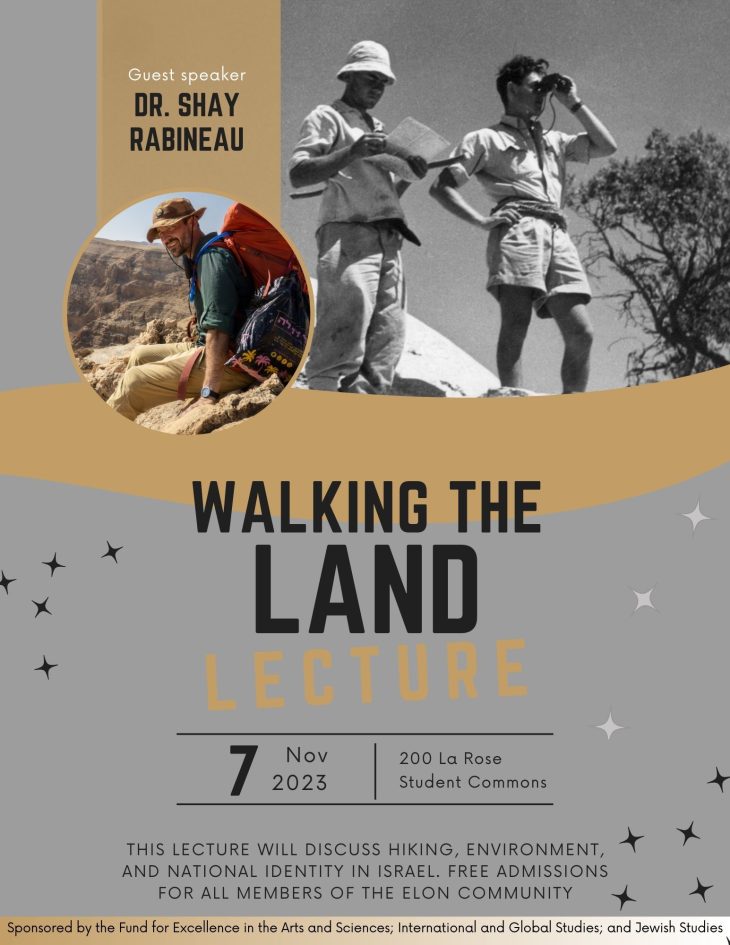This public lecture titled “Walking the Land: Hiking, Environment and National Identity in Israel” will focus on one of the most extensive and well-developed trail systems in the world, which emerged in Palestine and Israel since the early 20th century.
Shay Rabineau, associate professor of Israel studies and associate director of the Center for Israel Studies at Binghamton University, will give a lecture titled, “Walking the Land: Hiking, Environment and National Identity in Israel” on Nov. 7 in LaRose Student Commons 200 at 5:30 p.m.
 Based on the speaker’s recently published book, “Walking the Land: A History of Israeli Hiking Trails,” this presentation will illuminate the importance of Israel’s hiking trails and the development of a thriving recreational culture among locals and visitors alike to the country’s history, national identity and conservation efforts in a variety of ways. Using a seemingly superficial topic – hiking trails – this lecture will also explore their profound impact on Zionist thought, Israeli society and Palestinian national aspirations.
Based on the speaker’s recently published book, “Walking the Land: A History of Israeli Hiking Trails,” this presentation will illuminate the importance of Israel’s hiking trails and the development of a thriving recreational culture among locals and visitors alike to the country’s history, national identity and conservation efforts in a variety of ways. Using a seemingly superficial topic – hiking trails – this lecture will also explore their profound impact on Zionist thought, Israeli society and Palestinian national aspirations.
“This topic — hiking trails in Israel, and the way Dr. Rabineau engages it — crosscuts many issues that the inhabitants of Israel and Palestine have been dealing with in the 20th century,” said Baris Kesgin, associate professor of political science and policy studies. “The making of the trails network offers an uncommon window into the history of the state of Israel. Dr. Rabineau’s visit is immensely valuable for our campus community for its direct connections to many academic programs we offer, and to our campus offices and organizations. A seemingly trivial topic — hiking trails — will give our community the opportunity to think about Israel and Palestine from a different lens.”
Rabineau’s research and teaching lies at the intersection of history, politics and environment in Israel and the West Bank. He recently became the first person since 1934 to circle the Dead Sea on foot, and is writing a book on the history of the Dead Sea and its current environmental crisis.
Sponsored by the Fund for Excellence in the Arts and Sciences; Jewish Studies; and International and Global Studies.


